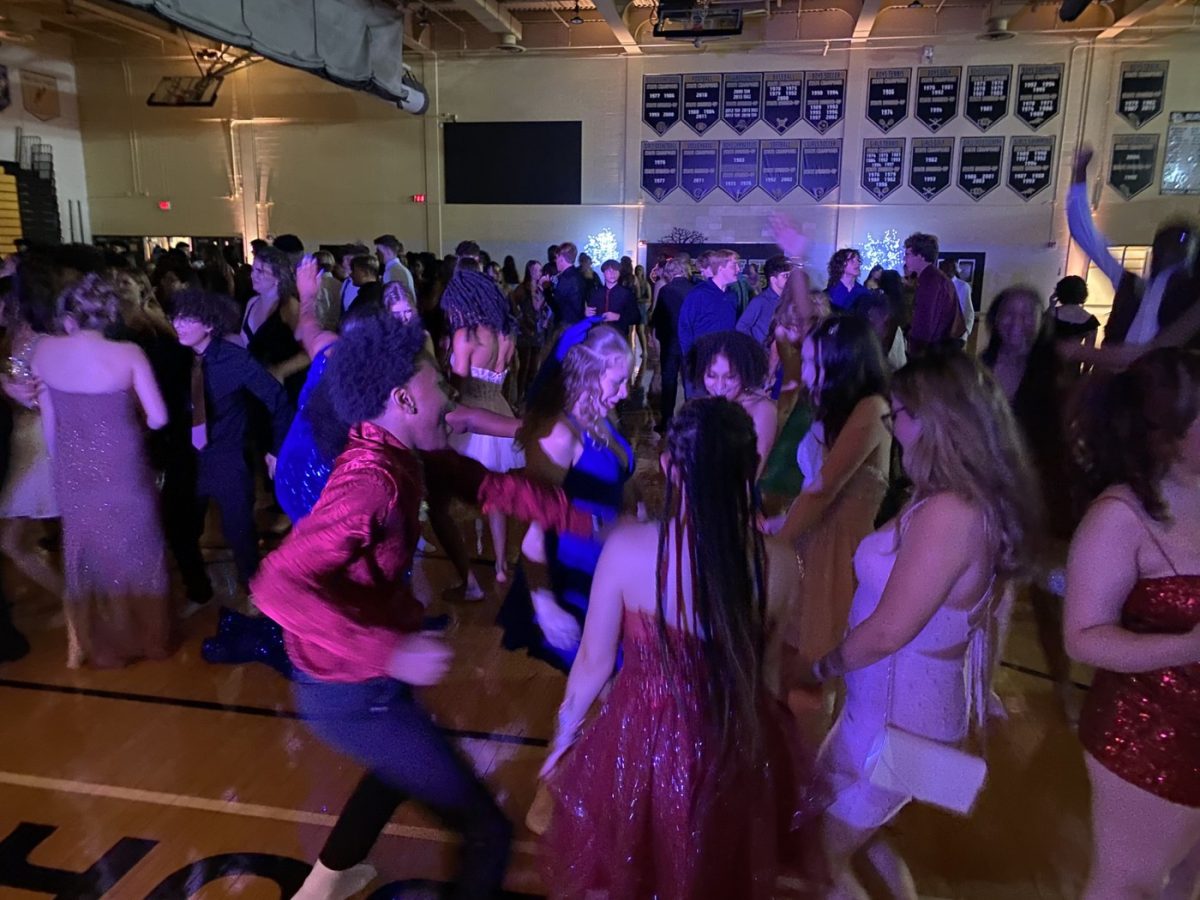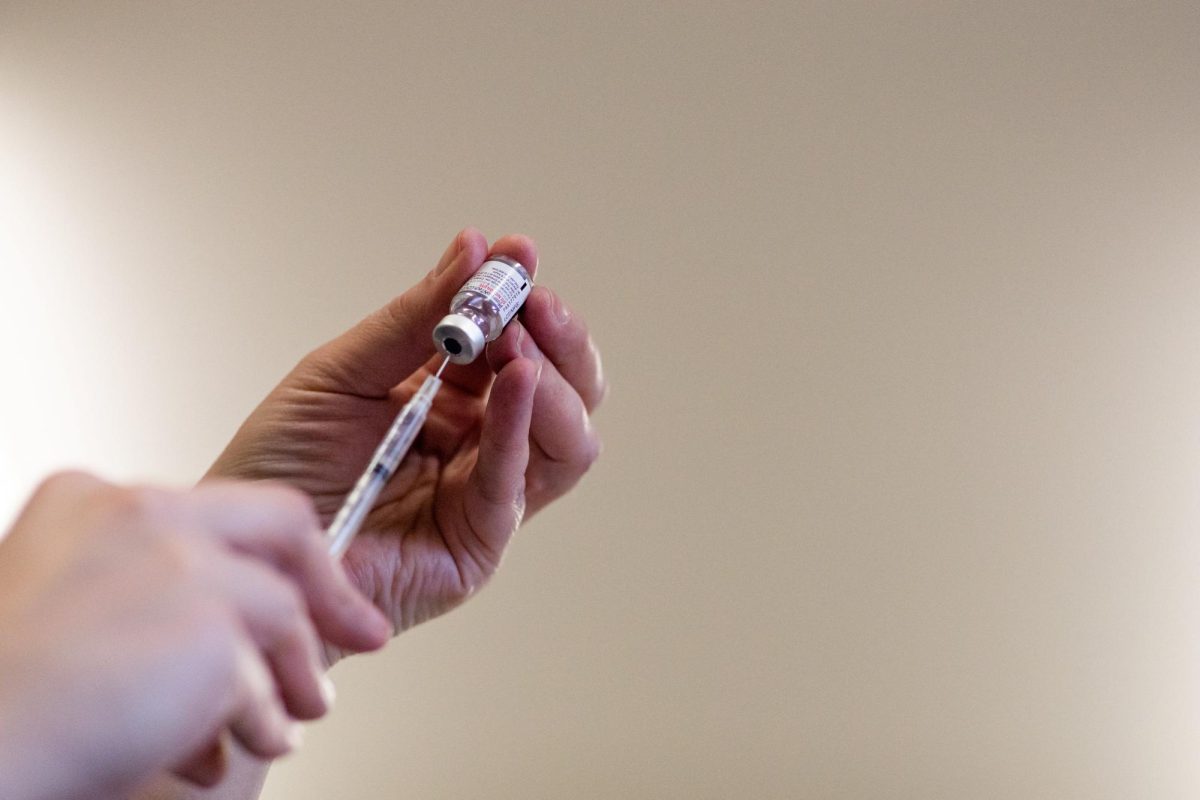For the Burke fall play, which ran from Oct. 27 through the 29, the theater department decided to put on “The Play That Goes Wrong.” Although the crew is important to every production, this one needed the crew to be at the top of their game. Throughout this murder mystery story, aspects of the play begin to go wrong ranging from forgotten lines to pieces of the set falling apart causing the play to spiral into a disaster.
During one instance, an entire wall on set falls over. Given the numerous amounts of things that go wrong with the set throughout the play, the crew had to step up to ensure each member of the cast remained safe while performing.
Crew advisor Jason Seckman helped mentor students on crew and played a major role in making sure everything ran safely and smoothly which included designing what the set would look like.
“I go and sit down at a computer and I start drawing a set floor plan,” Seckman said. “I keep in mind, ‘What students do I have?’ and ‘What are their skills?’ and ‘What’s possible that we can build?’. Some sets have to be very specific to what the play is like and this one was very specific.”
One major aspect about this play that caused the set to be tricky was the fact that pieces of the set would fall apart. For Seckman, this meant he had to be very aware when designing and building of where actors would be standing so nothing fell on top of them.
“Basically, it’s a two-part thing between me and Mokrycki,” Seckman said. “With the walls falling and things falling off, she’s got to make sure she stages things which means having the actors stand in safe locations. I, on the other hand, my job is to make sure everything is put together well so it doesn’t fall weird-like and have pieces flying off in every which direction.”
In order for pieces of the set to fall at the right time, senior Kaylee Burnside had an important role as the stage manager to keep the rest of the crew in sync.
“She stood back there and she was reading the script as they were out front doing it,” Seckman said. “She points them out and they do it.”
Along with Burnside, there were other members of the crew who assisted in making the play run smoothly.
“We do everything on Saturdays,” Seckman said. “I have a great group of freshmen girls that show up. They did such a great job this year. We had one girl, she does online school, and she would come and help out. I had a good core group that came every day consistently to help out.”
The students who joined crew and helped out on Saturday’s had to face many challenges when building this set as a result of the moving pieces needed for the show.
“I don’t like things that move because it’s really hard for students,” Seckman said. “When things move, students have to be more accurate with their building.”
For Seckman, he spent over fifty hours a week in order to complete this set in time for the show.
“This is the toughest set I’ve ever made,” Seckman said. “Most sets are stagnant and don’t move which I’ve done a thousand times. I put the screws in, I put the boards together, and it’s really easy. This one was so incredibly tough that it was the biggest stress thing ever and my wife was like, ‘I can see a change in you because you’re so stressed out about it.’”
Ultimately, while creating this set caused stress for both Seckman and students in crew, Seckman did his best to be a good mentor and make the experience enjoyable.
“I spent a lot of time trying to make it fun,” Seckman said. “If it’s not fun, no one wants to be there and it makes it miserable. I always bring a radio in, and play some music on the radio. We play Christmas music, I put on STAR, and sometimes people will plug into it and play their own music. I also make sure anytime I see any of the students that come on Saturday, I say ‘hi’ to them in the hallways and just see how their day is going. I just try to make things fun and easygoing.”








